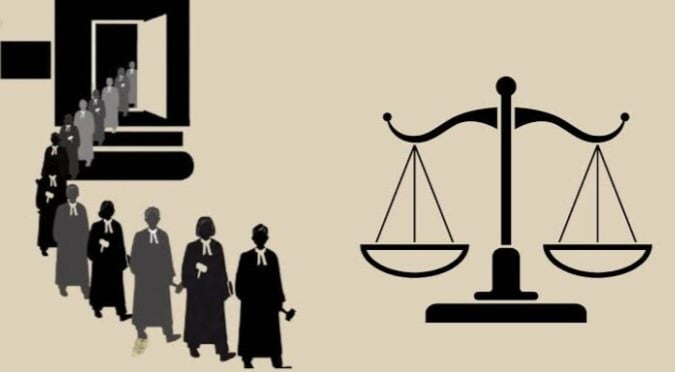Introduction
Judicial accountability is the cornerstone of a functional democracy. In Ghana, Article 146 of the Constitution has historically served as a safeguard against judicial misconduct, reinforcing the principle that no institution is above scrutiny. However, recent debates surrounding its invocation have raised concerns about selective enforcement and political interference.
This article examines the critical role of judicial accountability in maintaining public trust, assesses the integrity of past applications of Article 146, and proposes actionable reforms to fortify Ghana’s governance framework.
Historical Context and Precedent
Article 146 has been invoked in multiple instances to adjudicate matters of judicial and institutional conduct. The removal of Electoral Commission Chairperson Charlotte Osei, among other cases, demonstrated the judiciary’s capacity to uphold constitutional provisions without undue interference. When the judiciary itself becomes the subject of this process, the standard should remain consistent: transparency, impartiality, and adherence to legal precedent must guide the proceedings.
Judicial Accountability and Public Trust
For Ghana’s democracy to thrive, the judiciary must operate without bias or external influence. The recent controversy surrounding Article 146 has led to speculation about political maneuvering, threatening the credibility of past rulings. If judicial accountability is compromised, public trust in legal institutions erodes, undermining the very fabric of governance.
It is essential that constitutional provisions, including Article 146, be applied with unwavering consistency—regardless of the individuals or institutions involved.
Recommendations for Strengthening Judicial Accountability
To reinforce the integrity of Ghana’s judiciary, the following measures should be prioritized:
✅ Institutional Safeguards Against Politicization: The process of judicial accountability must remain insulated from executive and partisan influence. Independent oversight mechanisms should be strengthened to ensure impartial investigations and rulings.
✅ Transparent Case Review Processes: The judiciary should adopt a system where disciplinary proceedings under Article 146 are fully documented and accessible to the public. Clear procedural guidelines will prevent perceptions of selective enforcement.
✅ Strengthening Civic and Legal Literacy: A well-informed public is essential for holding institutions accountable. Expanding education on judicial processes and constitutional provisions will equip citizens with the tools to engage in governance reforms meaningfully.
The Way Forward
Ghana’s judicial system must embrace reforms that enhance transparency, consistency, and impartiality. Legislative adjustments should prioritize judicial independence, ensuring that accountability mechanisms function without compromise. Public engagement, media scrutiny, and institutional integrity must converge to uphold democratic principles.
As Honorable Minister for Justice and Attorney-General Dominic Akuritinga Ayine (MP) reviews ongoing judicial matters, a firm commitment to strengthening institutional accountability will reinforce public confidence. Ghana’s judiciary must serve as a beacon of impartial justice, applying constitutional provisions consistently and transparently, regardless of political climate or institutional affiliations.
Conclusion: A Legacy of Justice and Integrity
Ghana stands at a crossroads where institutional integrity must be safeguarded against doubt and manipulation. Article 146 is not merely a procedural mechanism—it is a test of our commitment to truth, honor, and justice. To wield it selectively or with political bias undermines the very foundation of governance.
As stewards of democratic principles, we must heed the wisdom of the ages: the law is not an instrument of convenience but a beacon of fairness and accountability. If we falter now, posterity will judge us not for the momentary controversies but for failing to uphold what is right.
Therefore, the path forward must be guided by an unwavering commitment to transparency, impartiality, and integrity. Justice must be applied consistently, truthfully, and honorably—not in response to public sentiment, but in adherence to constitutional principles. Only then will Ghana’s governance institutions stand unshaken, worthy of the trust bestowed upon them.
Retired Senior Citizen
Teshie-Nungua
[email protected]
#JudicialAccountability #GhanaGovernance
#Article146
#RuleOfLaw #JusticeForAll #IntegrityInLeadership #TransparencyMatters
#LegalReforms #PublicTrust #StrengtheningDemocracy


